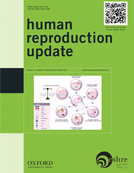Mediterranean Diet
How to submit an article:
- Registered users can submit any published journal article that has a unique DOI (Digital Object Identifier) name or link to Research Hub.
- For example, you can paste the full DOI link:
https://doi.org/10.1109/5.771073or just the DOI name:10.1109/5.771073into the field above and click submit. - The person who is first to submit a valid article to Research Hub will forever be credited for it, and every article submission earns you +6 Research Points.
Related Topics
Published research studies are articles that present the findings of original research that has undergone a peer-review process and has been made publicly available in scholarly journals, books or other media.

Nutrition and its role in prevention and management of rheumatoid arthritis
2023 Jul Autoimmunity Reviews Nikiphorou E, Philippou E
Review Article Mediterranean Diet Sardine Omega-3 Fatty AcidsNutrition, particularly an anti-inflammatory Mediterranean diet supplemented with oily fish and omega-3 supplements, can potentially reduce inflammation and improve symptoms of rheumatoid arthritis.

Assessing the influence of preconception diet on female fertility: a systematic scoping review of observational studies
2023 Jul 19 Human Reproduction Update Alesi S, Habibi N, Silva TR, Cheung N, Torkel S, Tay CT, et al.
Review Article Female Fertility Saturated Fats Trans Fats Mediterranean DietThe Mediterranean diet and reduced intake of trans fatty acids, saturated fatty acids, and discretionary foods like fast food and sugar-sweetened beverages may improve fertility rates.

Effects of the low-carb organic Mediterranean diet on testosterone levels and sperm DNA fragmentation
2023 Jan Current Research in Food Science Corsetti V, Notari T, Montano L
Cohort StudyThe Mediterranean diet, rich in organic vegetables, fruits, whole grains, and healthy fats, can markedly improve male fertility by increasing testosterone levels and reducing sperm DNA fragmentation.

Extra Virgin Olive Oil (EVOO), a Mediterranean Diet Component, in the Management of Muscle Mass and Function Preservation
2022 Aug 30 Nutrients Salucci S, Bartoletti-Stella A, Bavelloni A, Aramini B, Blalock WL, Fabbri F, et al.
The review suggests that due to its anti-inflammatory and antioxidative properties, EVOO supplementation has the potential to delay/prevent the loss of muscle mass and function associated with sarcopenia in aging individuals, emphasizing the need for further research to assess its effectiveness in dietary supplementation.
Theoretical Article Review Article Muscle Mass
The clinical impact of an extra virgin olive oil enriched mediterranean diet on metabolic syndrome: Lights and shadows of a nutraceutical approach
2022 Aug 04 Frontiers in Nutrition Seidita A, Soresi M, Giannitrapani L, Di Stefano V, Citarrella R, Mirarchi L, et al.
The study concludes that the Mediterranean diet (MD) enriched with extra virgin olive oil (EVOO) offers potential health benefits, including antioxidant, anti-inflammatory, insulin-sensitizing, cardioprotective, antiatherogenic, neuroprotective, immunomodulatory, and anticancer activities. However, the authors emphasize the need for further research to fully understand the clinical efficacy and the underlying biochemical and molecular mechanisms of EVOO in treating metabolic syndrome and its associated complications.
Review Article Metabolic Syndrome Extra Virgin Olive OilResearch insights are moderated by the Research Hub team and offer an at-a-glance overview of interesting research findings.

2023 Human Reproduction Update
The Mediterranean diet and reduced intake of trans fatty acids, saturated fatty acids, and discretionary foods like fast food and sugar-sweetened beverages may improve fertility rates.
Review Article Female Fertility Saturated Fats Trans Fats
Assessing the influence of preconception diet on female fertility: a systematic scoping review of observational studies
Alesi S, Habibi N, Silva TR, Cheung N, Torkel S, Tay CT, et al.

2023 Autoimmunity Reviews
Nutrition, particularly an anti-inflammatory Mediterranean diet supplemented with oily fish and omega-3 supplements, can potentially reduce inflammation and improve symptoms of rheumatoid arthritis.
Review Article Omega-3 Fatty Acids Sardine
Nutrition and its role in prevention and management of rheumatoid arthritis
Nikiphorou E, Philippou E

2023 Current Research in Food Science
The Mediterranean diet, rich in organic vegetables, fruits, whole grains, and healthy fats, can markedly improve male fertility by increasing testosterone levels and reducing sperm DNA fragmentation.
Cohort Study
Effects of the low-carb organic Mediterranean diet on testosterone levels and sperm DNA fragmentation
Corsetti V, Notari T, Montano L

2022 International Journal of Environmental Research and Public Health
Dietary strategies, such as caloric restriction and ketogenic diets, can alleviate chronic pain and enhance quality of life.
Systematic Review Caloric Restriction Intermittent Fasting Ketogenic Diet Pain Rheumatoid Arthritis
The Effectiveness of Intermittent Fasting, Time Restricted Feeding, Caloric Restriction, a Ketogenic Diet and the Mediterranean Diet as Part of the Treatment Plan to Improve Health and Chronic Musculoskeletal Pain: A Systematic Review
Cuevas-Cervera M, Perez-Montilla J, Gonzalez-Muñoz A, Garcia-Rios M, Navarro-Ledesma S

2020 Journal of Alzheimer's Disease
High phenolic early harvest extra virgin olive oil shows notable improvement in cognitive function compared to a moderate phenolic version and the Mediterranean diet alone.
Clinical Study Alzheimer's Disease Cognitive Function Extra Virgin Olive Oil
A Randomized Clinical Trial of Greek High Phenolic Early Harvest Extra Virgin Olive Oil in Mild Cognitive Impairment: The MICOIL Pilot Study
Tsolaki M, Lazarou E, Kozori M, Petridou N, Tabakis I, Lazarou I, et al.
Review Articles
Review articles summarise and critically evaluate the current state of research on a specific topic or field by synthesising multiple primary research studies.

Nutrition and its role in prevention and management of rheumatoid arthritis
2023 Jul Autoimmunity Reviews Nikiphorou E, Philippou E
Review Article Mediterranean Diet Sardine Omega-3 Fatty AcidsNutrition, particularly an anti-inflammatory Mediterranean diet supplemented with oily fish and omega-3 supplements, can potentially reduce inflammation and improve symptoms of rheumatoid arthritis.

Assessing the influence of preconception diet on female fertility: a systematic scoping review of observational studies
2023 Jul 19 Human Reproduction Update Alesi S, Habibi N, Silva TR, Cheung N, Torkel S, Tay CT, et al.
Review Article Female Fertility Saturated Fats Trans Fats Mediterranean DietThe Mediterranean diet and reduced intake of trans fatty acids, saturated fatty acids, and discretionary foods like fast food and sugar-sweetened beverages may improve fertility rates.

Extra Virgin Olive Oil (EVOO), a Mediterranean Diet Component, in the Management of Muscle Mass and Function Preservation
2022 Aug 30 Nutrients Salucci S, Bartoletti-Stella A, Bavelloni A, Aramini B, Blalock WL, Fabbri F, et al.
The review suggests that due to its anti-inflammatory and antioxidative properties, EVOO supplementation has the potential to delay/prevent the loss of muscle mass and function associated with sarcopenia in aging individuals, emphasizing the need for further research to assess its effectiveness in dietary supplementation.
Theoretical Article Review Article Muscle Mass
The clinical impact of an extra virgin olive oil enriched mediterranean diet on metabolic syndrome: Lights and shadows of a nutraceutical approach
2022 Aug 04 Frontiers in Nutrition Seidita A, Soresi M, Giannitrapani L, Di Stefano V, Citarrella R, Mirarchi L, et al.
The study concludes that the Mediterranean diet (MD) enriched with extra virgin olive oil (EVOO) offers potential health benefits, including antioxidant, anti-inflammatory, insulin-sensitizing, cardioprotective, antiatherogenic, neuroprotective, immunomodulatory, and anticancer activities. However, the authors emphasize the need for further research to fully understand the clinical efficacy and the underlying biochemical and molecular mechanisms of EVOO in treating metabolic syndrome and its associated complications.
Review Article Metabolic Syndrome Extra Virgin Olive Oil
The Effectiveness of Intermittent Fasting, Time Restricted Feeding, Caloric Restriction, a Ketogenic Diet and the Mediterranean Diet as Part of the Treatment Plan to Improve Health and Chronic Musculoskeletal Pain: A Systematic Review
2022 May 30 International Journal of Environmental Research and Public Health Cuevas-Cervera M, Perez-Montilla J, Gonzalez-Muñoz A, Garcia-Rios M, Navarro-Ledesma S
Systematic Review Pain Caloric Restriction Mediterranean Diet Ketogenic Diet Intermittent Fasting Rheumatoid ArthritisDietary strategies, such as caloric restriction and ketogenic diets, can alleviate chronic pain and enhance quality of life.
Clinical Trials
Clinical trials are research studies that involve people and are conducted to evaluate the safety and efficacy of new treatments or interventions, such as drugs, medical devices, or behavioural therapies.
Study Protocols
Published study protocols are detailed plans that outline the objectives, methodology, statistical analyses, and organisation of a research study that have been made publicly available for others to review and use as a reference.
Presentation Slides

Review Article
The Mediterranean diet and reduced intake of trans fatty acids, saturated fatty acids, and discretionary foods like fast food and sugar-sweetened beverages may improve fertility rates.
Alesi S, Habibi N, Silva TR, Cheung N, Torkel S, Tay CT, Quinteros A, Winter H, Teede H, Mousa A, Grieger JA, Moran LJ

Review Article
Nutrition, particularly an anti-inflammatory Mediterranean diet supplemented with oily fish and omega-3 supplements, can potentially reduce inflammation and improve symptoms of rheumatoid arthritis.
Nikiphorou E, Philippou E

Cohort Study
The Mediterranean diet, rich in organic vegetables, fruits, whole grains, and healthy fats, can markedly improve male fertility by increasing testosterone levels and reducing sperm DNA fragmentation.
Corsetti V, Notari T, Montano L

Systematic Review
Dietary strategies, such as caloric restriction and ketogenic diets, can alleviate chronic pain and enhance quality of life.
Cuevas-Cervera M, Perez-Montilla J, Gonzalez-Muñoz A, Garcia-Rios M, Navarro-Ledesma S

Clinical Study
High phenolic early harvest extra virgin olive oil shows notable improvement in cognitive function compared to a moderate phenolic version and the Mediterranean diet alone.
Tsolaki M, Lazarou E, Kozori M, Petridou N, Tabakis I, Lazarou I, Karakota M, Saoulidis I, Melliou E, Magiatis P

Review Article
Incorporating avocados into the Mediterranean diet may enhance its benefits, offering greater health flexibility and adaptability for non-Mediterranean residents.
Ford NA, Liu AG

Review Article
The Mediterranean diet, especially the high consumption of extra-virgin olive oil, significantly reduces the risks of vascular diseases and Alzheimer's.
Román GC, Jackson RE, Reis J, Román AN, Toledo JB, Toledo E
Executive Summary
Write an executive summary in the form of a blog article on the topic of "Research into Chinese medicine treatment for Mediterranean Diet" summarising the research below and using language that can be easily understood by patients and avoiding medical jargon using a professional and caring tone of voice.
Write an executive summary in the form of a blog article on the topic of "Researched Chinese medicine treatments for Mediterranean Diet" summarising the research below in an objective and easy to understand way, and using language that can be easily understood by patients. Group the article into Chinese medicine treatments first, followed by nutrition and other treatments. Avoid using medical jargon and use a professional and caring tone of voice.
Write me a concise but easy to understand executive summary on the topic of "Chinese medicine treatments for Mediterranean Diet" based on the following research that I will give you. Your summary should be 2 paragraphs long in Australian English spelling and include references to the studies.
A Review Article published in 2023 in the journal Human Reproduction Update found that The Mediterranean diet and reduced intake of trans fatty acids, saturated fatty acids, and discretionary foods like fast food and sugar-sweetened beverages may improve fertility rates. This title represents a systematic scoping review of four electronic databases, namely Medline and EMBASE via Ovid Processing, CAB Direct, and CINAHL via EBSCO. The researchers included observational works, consisting of prospective and retrospective cohort, cross-sectional, and case-control studies, up to September 27, 2021. The criteria for study inclusion were women of reproductive age in the preconception stage who were examined for the connection between preconception diet and fertility outcomes. From the total of 36 studies that were found eligible for review, the one diet that stood out with the most significant and consistent association with increased clinical pregnancy rates was the Mediterranean diet. Dietary factors such as reducing trans fatty acids, saturated fatty acids, and discretionary food intake, which includes fast food and sugar-rich drinks, were found to lead to an improvement in live birth, clinical pregnancy rates, and associated ART outcomes. However, this study also found that elements like seafood, dairy, and soy showed varying findings across a few studies. Despite the mixed results, it was noted that following some of these dietary regulations, notably Mediterranean diet, shows consistency with healthy eating guidelines, implying potential benefits in fertility.
A Review Article published in 2023 in the journal Autoimmunity Reviews found that Nutrition, particularly an anti-inflammatory Mediterranean diet supplemented with oily fish and omega-3 supplements, can potentially reduce inflammation and improve symptoms of rheumatoid arthritis. The review examines evidence indicating a possible connection between nutrition and the risk and management of rheumatoid arthritis, an autoimmune disease having an immune-inflammatory response. The impact of different food types was considered, including pro-inflammatory and anti-inflammatory foods. Specifically, the research highlights the effectiveness of a Mediterranean diet, rich in fish and supplemented with omega-3 polyunsaturated fatty acids, in reducing inflammation and oxidation. Other factors such as herbs and spices, beverages, vitamin D, and probiotics were also taken into account. The research emphasizes the direct and indirect role of nutrition through the management of co-morbidity. The disease activity was observed to improve with dietary changes, particularly a propensity to reduce inflammation, oxidation, and beneficial effects on gut microbiota. An anti-inflammatory Mediterranean diet, supplemented with consumption of oily fish at least twice a week, and daily intake of omega-3 polyunsaturated fatty acid supplements of 2 g, has been recommended. The study also highlights the importance of rheumatologists working closely with registered dietitians to support patients in managing a well-balanced diet according to their individual needs.
A Cohort Study published in 2023 in the journal Current Research in Food Science found that The Mediterranean diet, rich in organic vegetables, fruits, whole grains, and healthy fats, can markedly improve male fertility by increasing testosterone levels and reducing sperm DNA fragmentation. The study designed a dietary regimen for 50 subfertile men, modifying their diets primarily with organic foods and a low-carb Mediterranean style approach, emphasized on consuming high amount of vegetables and fruits rich in various nutrients and antioxidant substances. The participants introduced whole grains, low glycemic load options, removed refined carbohydrates, ate green leafy vegetables and red fruits daily, reduced or eliminated dairy products, consumed primarily grass-fed meat and wild caught seafood, and replaced saturated fats with healthy fats such as olive oil, avocado, and nuts. After following the modified meal plan for three months, there were considerable increases in testosterone levels observed in the subjects. Alongside this, the study also noted a decrease in sperm DNA fragmentation, particularly in individuals who reduced their carbohydrate intake by 35%. These findings demonstrate the direct effects a specifically modified diet can have on improving male fertility.
A Systematic Review published in 2022 in the journal International Journal of Environmental Research and Public Health found that Dietary strategies, such as caloric restriction and ketogenic diets, can alleviate chronic pain and enhance quality of life. This systematic review selected 16 articles from various databases including PubMed, Web of Sciences, ProQuest, and Scopus that were published within the last 6 years. These consisted of randomized clinical trials (RCTs), observational studies, and systematic reviews evaluating the effectiveness of different dietary strategies in the treatment of chronic pain. A range of assessment scales—PEDro, PVI, QUALSYT and the Quality Assessment Tool of Systematic Reviews scale— were utilized to gauge the risk of bias in these studies. The findings indicate an inconclusive consensus on the impact of an intermittent fasting (IF) diet on pain improvement. However, a caloric restriction diet emerged as a potential long-term treatment option for pain. Additionally, time-restricted food and ketogenic diets showed promising results in improving life quality in chronic conditions. Despite some studies indicating opposite results, the majority of the selected articles exhibited good methodological quality on their respective assessment scales.
A Clinical Study published in 2020 in the journal Journal of Alzheimer's Disease found that High phenolic early harvest extra virgin olive oil shows notable improvement in cognitive function compared to a moderate phenolic version and the Mediterranean diet alone. A randomized prospective study was conducted examining the effects of high phenolic early harvest extra virgin olive oil (HP-EH-EVOO) and moderate phenolic extra virgin olive oil (MP-EVOO) against the Mediterranean Diet (MeDi) in individuals with mild cognitive impairment. Participants were genetically tested for susceptibility to Alzheimer's disease and had their cognitive functions tested at the start and after 12 months. They were then randomly put into one of three groups: those who received HP-EH-EVOO, those who received MP-EVOO, and those who only received instructions on following the MeDi. The results showed that participants who consumed HP-EH-EVOO demonstrated better cognitive performance in almost all areas over the course of the study, compared to those who consumed MP-EVOO and those who followed the MeDi. MP-EVOO consumers also demonstrated noticeable cognitive improvement compared to the MeDi group, who exhibited worse or similar cognitive performance to their baseline in almost all areas. Moreover, participants who consumed either form of olive oil performed better in cognitive tests, regardless of their predisposition to Alzheimer's disease.
A Review Article published in 2020 in the journal Frontiers in Nutrition found that Incorporating avocados into the Mediterranean diet may enhance its benefits, offering greater health flexibility and adaptability for non-Mediterranean residents. The research approach starts with an evaluation of the nutritional value of a Mediterranean diet, which is traditionally rich in fruits, vegetables, and oleic-acid-rich olive oil. This diet has been associated with lower risks of several chronic diseases. Simultaneously the paper introduces the subject of rising obesity rates globally. The study then evaluates the potential benefits of modifying the Mediterranean diet to include non-traditional fruits and vegetables that could provide more variety in food choices and greater adaptability for those living outside the Mediterranean region. The avocado, a fruit native to the Mediterranean climate and rich in beneficial nutrients like oleic acid and fiber, is proposed as a potential addition. Discussion of the study reveals an interesting proposition: including avocado in the traditional Mediterranean diet, which is not commonly done. The avocado's health benefits and nutritional value are then analysed in depth, drawing from existing research studies, to substantiate the recommendation for incorporating this fruit into the Mediterranean dietary pattern. The discussion concludes by highlighting the potential enhanced health benefits that can result from this inclusion, thereby presenting a compelling case for the suggested adjustment.
A Review Article published in 2019 in the journal Revue Neurologique found that The Mediterranean diet, especially the high consumption of extra-virgin olive oil, significantly reduces the risks of vascular diseases and Alzheimer's. The research has been based on a plethora of observational epidemiological studies, local population experiences, meta-analyses of epidemiologic data, and experimental studies, all converging to the connection between the Mediterranean diet and a reduced prevalence of different ailments. The study scopes extend over long periods, such as the Italian-American experience from 1935 to 1965, or the Seven Countries Study spanning four decades from 1960 to 2000. Another significant evidence base is the French Three-City Study, which followed participants for ten years from 2000 to 2010. Apart from human trials, the article includes results from experimental animal models, specifically concerning late-onset Alzheimer disease. The findings showcase a consistent trend linking reduction in vascular diseases, obesity, arthritis, cancer, cognitive decline, and specifically Alzheimer's disease with increased adherence to a Mediterranean dietary pattern, particularly high intake of extra-virgin olive oil. Certain dietary components such as fruits, seeds, legumes, and vegetables contribute to the benefits. However, olive oil stands out as the chief dietary fat in Mediterranean countries. It provides plentiful monounsaturated fatty acids, beneficial polyphenols, and other antioxidants, which play a crucial part in these health benefits. The most striking discovery is extra-virgin olive oil's potential to mitigate the effects of adverse vascular factors, indicating a promising approach to preventing late-onset Alzheimer's disease.
Moderation Tools
Topic
Sign In
Users not signed in are limited to viewing the 5 most recent items of content.